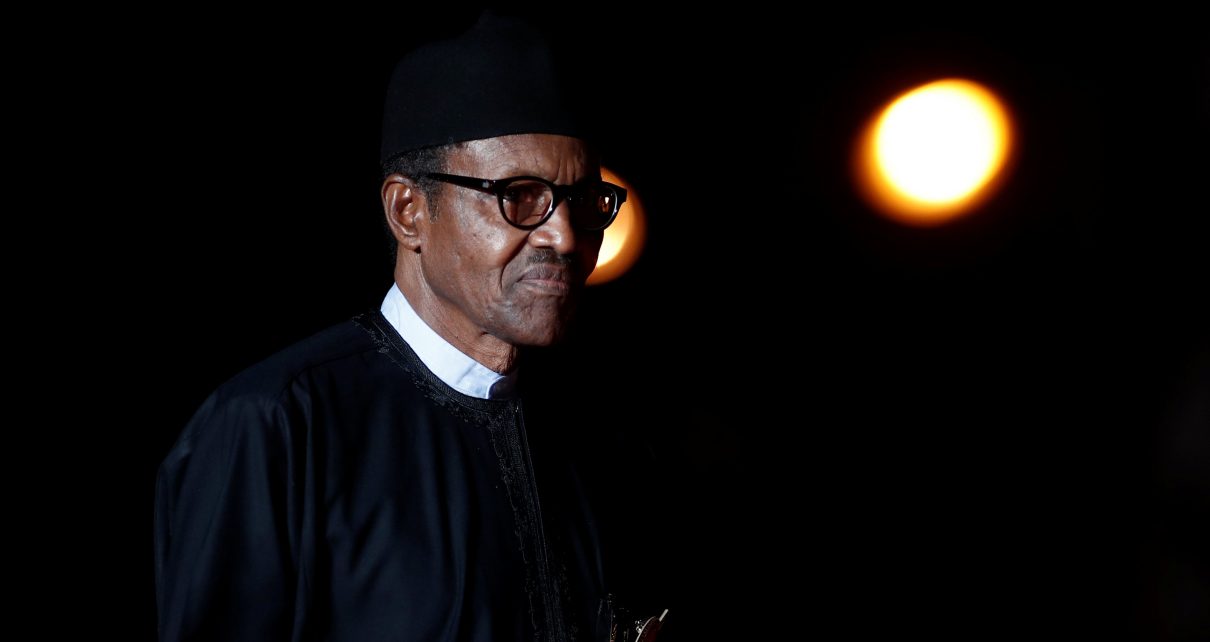By Nkanu Egbe
The passing of former President Muhammadu Buhari in a London clinic on July 13, 2025, marks the end of a remarkable journey that spanned decades of military discipline, political resilience, and national controversy. As Nigeria reflects on the life and legacy of the man who once declared that “we have no other country but Nigeria,” one voice stands out in offering an insider’s perspective—Garba Shehu, Buhari’s chief media aide and confidant for eight years.
In his recently published book, According to the President: Lessons from a Presidential Spokesman’s Experience, Shehu takes readers behind the curtains of Aso Rock, narrating not only the evolution of Buhari’s political career but also the burden of defending power in a polarized, demanding democracy. What emerges is a portrait of a president whose legacy is defined as much by his intentions as by the contradictions of his rule.
A Presidency Built on Discipline and Big Projects
From the outset, Buhari came to power on the strength of a reputation forged in steel—disciplined, incorruptible, and austere. Shehu’s account reinforces this image: Buhari remained true to his spartan lifestyle even in office, eschewing extravagance and maintaining a sense of quiet purpose. He wasn’t a politician who chased the camera. He preferred work over words, and that, for better or worse, became both his strength and his flaw.
Perhaps his most tangible legacy lies in the realm of infrastructure. Roads, railways, airports, and bridges—many initiated under his watch—stand as concrete testaments to his long-term development vision. Shehu defends this approach, arguing that Buhari was not building for applause but for posterity. The Lagos-Ibadan railway, the Second Niger Bridge, and several expressway corridors symbolize a silent revolution, one whose impact may only be fully appreciated in years to come.
The Anti-Corruption Banner
Buhari’s war on corruption, a central theme of his campaign, was another defining feature of his administration. Shehu portrays the president as genuinely committed to cleaning up the system, even if the process was imperfect. The implementation of the Treasury Single Account (TSA), the strengthening of anti-corruption agencies, and high-profile prosecutions were among the steps taken. Yet, critics often pointed out that the war was selective, and its outcomes not always conclusive.
Nonetheless, Shehu insists that Buhari reset the tone of governance and sent a message that public office was not a licence to loot. For a nation weary of kleptocracy, this moral stance mattered—even if its practical effect was uneven.
The Silence That Spoke Volumes
If Buhari’s governance had a soundtrack, it would be one of silence. Shehu’s memoir offers insight into a man who was more comfortable with action than with articulation. During moments of national anxiety—whether the #EndSARS protests, fuel subsidy debates, or recurring security failures—Buhari’s stoic silence often created more questions than answers.
According to Shehu, this was not negligence but a deeply ingrained philosophy. Buhari believed in letting institutions do their work. He saw no need to offer daily commentary or dramatic public appearances. But in a democracy where leadership is often measured by visibility and voice, this approach left a communication gap that was eagerly filled by speculation, rumor, and resentment.
Security: The Unfinished War
Despite his military credentials and campaign promises, Buhari struggled to deliver security. While Boko Haram was significantly degraded in its early strongholds, a new wave of violence—banditry, kidnappings, and herder-farmer clashes—rose to fill the vacuum. Shehu admits that the administration was overwhelmed at times and unable to decisively restore public confidence.
The North, which once saw Buhari as its greatest hope, became one of the regions most plagued by insecurity during his tenure. This irony was not lost on observers and remains one of the more painful failures of his presidency.
A Nation Divided?
Buhari’s appointment choices drew heavy fire for perceived ethnic and regional bias. The image of a president who favored the North, especially in key security and economic positions, stirred debates on national unity. While Shehu dismisses these claims as simplistic—arguing for merit over politics—the optics of imbalance were powerful and enduring.
Combined with a shrinking space for dialogue, many Nigerians—especially from the South-East and minority regions—felt alienated from the Buhari administration. This perceived lack of inclusion was one of the loudest criticisms he faced throughout his eight-year rule.
The Paradox of Power
In many ways, Buhari’s presidency was a study in paradox. Here was a man who loathed flamboyance yet presided over a government often criticized for being aloof. A man of integrity, yet whose circle sometimes drew accusations of impunity. A builder of roads and rails, yet a communicator who left many unmoved.
Garba Shehu’s book doesn’t attempt to canonize Buhari, but neither does it condemn him. It offers, instead, a view of a president who tried—sincerely, stubbornly—to lead Nigeria his way. A man who governed with quiet conviction, yet left behind a nation loudly debating whether he fulfilled his promise.
As the country mourns its former leader, it is clear that Muhammadu Buhari’s legacy will not be defined by a single narrative. It will be argued, revised, and reinterpreted for years to come.
But perhaps that, too, is a kind of greatness.
- Nkanu Egbe is the Publisher/Editor of Lagos Metropolitan newspaper.


